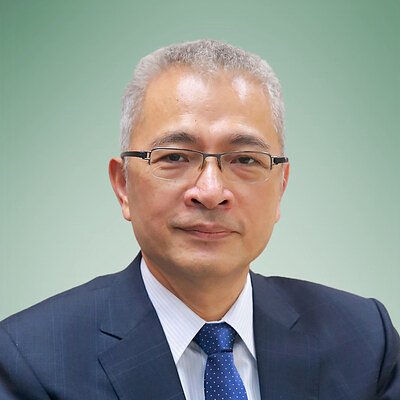
Taiwan’s Tech Future: New ITRI President Bets on Collaboration & Industrial Reinvention
Dr. Pei-Zen Chang takes the helm of Taiwan’s Industrial Technology Research Institute, prioritizing talent, industrial transformation, and global partnerships amid rising geopolitical pressures.
Taiwan’s Tech Future: New ITRI President Bets on Collaboration & Industrial Reinvention
TAIPEI – As global supply chains restructure and technological competition intensifies, Taiwan’s Industrial Technology Research Institute (ITRI) finds itself at a critical juncture. The appointment of Dr. Pei-Zen Chang as its new President signals a renewed commitment to innovation, but also a strategic pivot towards deeper collaboration and industrial reinvention. While ITRI has long been a cornerstone of Taiwan’s economic success – instrumental in the rise of semiconductor giants like TSMC and UMC – Dr. Chang’s vision extends beyond simply maintaining that lead.
Dr. Chang’s inaugural address emphasized the need for ITRI to serve as both a trusted think tank for the government and a reliable technology partner for industry. This dual role is particularly crucial as Taiwan navigates a complex geopolitical landscape and strives to maintain its competitive edge in critical technologies. “The current environment demands a more agile and collaborative approach,” explains a source close to the Ministry of Science and Technology. “ITRI needs to be a catalyst, connecting research with real-world applications and fostering a vibrant innovation ecosystem.”
Beyond Semiconductors: A Broader Innovation Agenda
ITRI’s historical success has been intrinsically linked to the semiconductor industry, and that remains a core focus. However, Dr. Chang’s three key priorities – empowering talent, accelerating industrial transformation, and strengthening international engagement – suggest a deliberate broadening of the institute’s innovation agenda.
“We need to move beyond simply being excellent in semiconductors,” says an industry analyst specializing in Taiwanese tech. “That’s table stakes now. The real opportunity lies in applying those strengths to emerging fields like smart healthcare, sustainable energy, and resilient infrastructure.”
Dr. Chang’s emphasis on “empowering talent” appears to be a direct response to growing concerns about a potential skills gap. Taiwan, while boasting a highly educated workforce, faces increasing competition for STEM professionals. ITRI is reportedly planning expanded training programs, increased support for university research, and initiatives to attract and retain top talent from both within Taiwan and abroad.
“The goal isn’t just to train more engineers,” says a source familiar with ITRI’s talent development plans. “It's to cultivate a new generation of innovators who can think critically, collaborate effectively, and adapt quickly to changing circumstances.”
From Lab to Market: Bridging the Innovation Gap
Perhaps the most significant challenge facing ITRI – and Taiwan as a whole – is translating research breakthroughs into commercially viable products and services. While Taiwan excels at manufacturing and process optimization, it has historically struggled to capture a larger share of the value chain in emerging technologies.
“There’s a tendency to focus on incremental improvements rather than disruptive innovation,” explains a university professor collaborating with ITRI. “We need to foster a more risk-tolerant culture that encourages experimentation and rewards bold ideas.”
Dr. Chang’s focus on “industrial transformation” is designed to address this challenge. ITRI is reportedly investing in programs to facilitate technology transfer, promote industry-academia collaboration, and provide seed funding for promising startups. The goal is to create a more dynamic and interconnected innovation ecosystem where ideas can flow freely and rapidly translate into real-world applications.
Navigating Geopolitical Currents: The Importance of Partnerships
Taiwan’s geopolitical situation adds another layer of complexity to ITRI’s mission. As tensions with China escalate, the need for international partnerships becomes increasingly critical. Dr. Chang’s emphasis on “international engagement” reflects a recognition that Taiwan cannot – and should not – go it alone.
“Collaboration is no longer a luxury; it’s a necessity,” says a source within the Ministry of Economic Affairs. “We need to diversify our supply chains, strengthen our relationships with like-minded partners, and build a more resilient innovation ecosystem.”
ITRI is reportedly exploring partnerships with leading research institutions and tech companies in the United States, Europe, and Japan. The focus is on collaborative research projects, technology licensing agreements, and joint ventures.
“The goal isn’t just to access new technologies; it’s to build trust and create a shared vision for the future,” explains an industry analyst. “Taiwan has a lot to offer, but it needs to be seen as a reliable and trustworthy partner.”
A Strategic Pivot for Taiwan’s Tech Future
The appointment of Dr. Pei-Zen Chang marks a strategic pivot for ITRI – and potentially for Taiwan’s tech future. By prioritizing talent, industrial transformation, and international engagement, Dr. Chang aims to ensure that Taiwan remains a global leader in innovation, even as the geopolitical landscape shifts and the competitive pressures intensify. While the challenges are significant, the opportunity is immense. Taiwan’s success will depend on its ability to adapt, collaborate, and embrace a bold new vision for the future.
